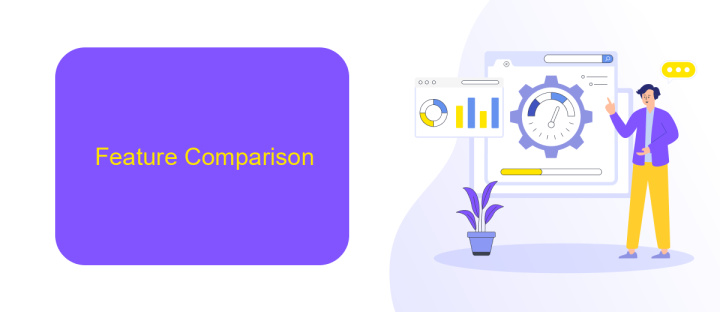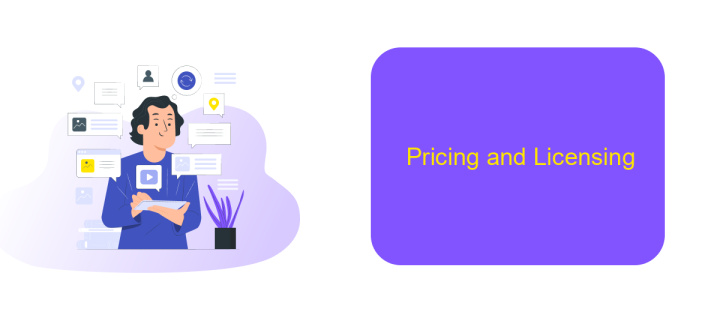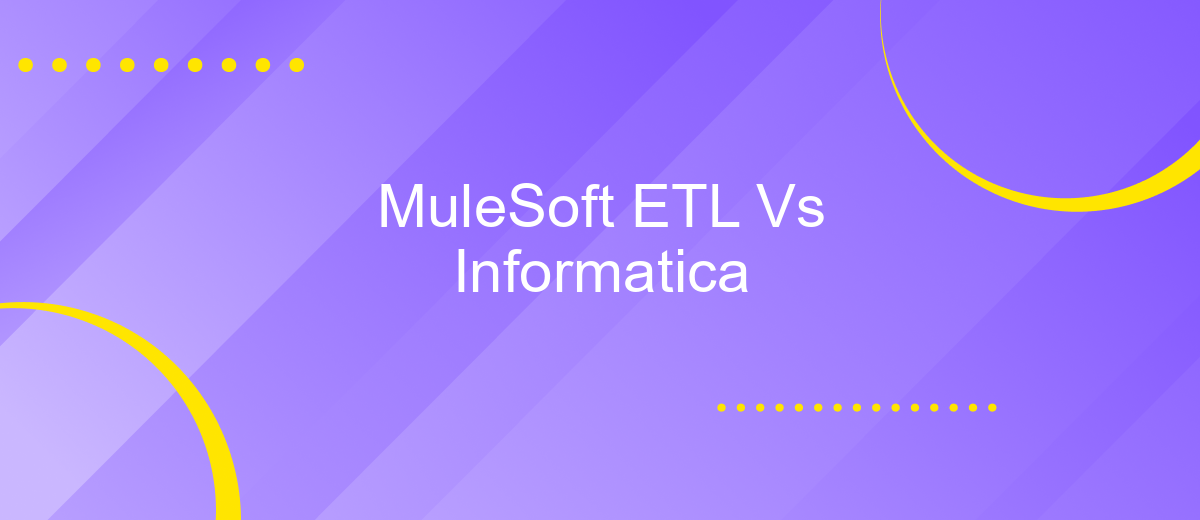MuleSoft ETL Vs Informatica
Choosing the right ETL (Extract, Transform, Load) tool is crucial for efficient data management and integration. This article compares MuleSoft and Informatica, two leading ETL solutions, highlighting their features, strengths, and weaknesses. Whether you're a business looking to streamline data processes or an IT professional seeking the best tool, this comparison will help you make an informed decision.
Introduction
In today's data-driven world, businesses are increasingly relying on robust ETL (Extract, Transform, Load) tools to manage and integrate their data efficiently. MuleSoft and Informatica are two of the leading solutions in this space, each offering unique features and capabilities. Understanding the differences between these platforms can help organizations make an informed decision that best suits their data integration needs.
- MuleSoft: Known for its API-led connectivity and integration capabilities.
- Informatica: Renowned for its comprehensive data management and governance features.
- ApiX-Drive: A versatile service for setting up integrations quickly and efficiently.
Both MuleSoft and Informatica have their strengths and weaknesses, and the choice between them often depends on specific business requirements. For instance, MuleSoft excels in API management and real-time data integration, while Informatica offers extensive data quality and governance tools. Additionally, services like ApiX-Drive can complement these platforms by providing an easy-to-use interface for setting up integrations, further enhancing their capabilities.
Feature Comparison

When comparing MuleSoft and Informatica, one of the key differences lies in their integration capabilities. MuleSoft is known for its Anypoint Platform, which provides a unified solution for API management and integration. It offers a wide range of connectors and tools that facilitate seamless integration across various systems. Informatica, on the other hand, excels in data management and ETL processes, providing robust data integration solutions that are highly scalable and reliable. Its Intelligent Data Platform leverages AI and machine learning to optimize data processing and ensure data quality.
Another significant difference is in the user experience and ease of use. MuleSoft's Anypoint Platform is designed with a user-friendly interface that allows developers to easily create, manage, and monitor APIs and integrations. It also supports a wide range of integration patterns, making it versatile for different use cases. Informatica, while powerful, can be more complex to set up and manage, often requiring specialized knowledge. However, both platforms can benefit from services like ApiX-Drive, which simplifies the integration process by automating data transfer between various applications, enhancing the overall efficiency of both MuleSoft and Informatica implementations.
Pros and Cons

When comparing MuleSoft ETL and Informatica, both platforms offer unique strengths and weaknesses. MuleSoft ETL is known for its robust API-led connectivity, which simplifies the integration of various applications, data sources, and devices. Informatica, on the other hand, excels in data management and governance, making it a preferred choice for enterprises with complex data requirements.
- MuleSoft ETL Pros: Strong API integration, easy scalability, and flexible architecture.
- MuleSoft ETL Cons: Higher cost, steep learning curve, and limited data governance features.
- Informatica Pros: Comprehensive data management, strong data governance, and extensive support for data quality.
- Informatica Cons: Slower performance with large data volumes, complex setup, and higher licensing fees.
While both MuleSoft ETL and Informatica have their pros and cons, the choice largely depends on your specific needs. For seamless integration and API management, MuleSoft ETL is a strong contender. For robust data governance and management, Informatica stands out. Tools like ApiX-Drive can further enhance integration processes, providing additional flexibility and ease of use.
Pricing and Licensing

When comparing the pricing and licensing models of MuleSoft ETL and Informatica, it's essential to consider the specific needs of your organization. MuleSoft offers a subscription-based pricing model, which scales based on the number of cores or transactions. This flexibility allows businesses to start small and expand as their integration needs grow.
Informatica, on the other hand, also offers a subscription-based model but provides a more comprehensive suite of data management tools. Their pricing can vary significantly depending on the features and volume of data being processed. This can make Informatica a more costly option for smaller businesses but a robust solution for larger enterprises.
- MuleSoft: Subscription-based, scalable pricing
- Informatica: Subscription-based, feature-rich, and potentially higher cost
For businesses looking for an alternative to manage their integrations effectively, ApiX-Drive offers a user-friendly and cost-effective solution. It allows seamless integration across various platforms without the need for extensive technical expertise, making it an excellent choice for small to medium-sized enterprises looking to streamline their operations.
Conclusion
In conclusion, both MuleSoft ETL and Informatica offer robust solutions for data integration and transformation, each with its own set of strengths and unique features. MuleSoft excels in providing a flexible and scalable platform with a strong focus on API-led connectivity, making it an excellent choice for organizations looking to integrate a wide range of applications and services seamlessly. On the other hand, Informatica stands out with its comprehensive suite of data management tools and advanced data governance capabilities, making it ideal for enterprises that require extensive data quality and compliance measures.
When choosing between MuleSoft ETL and Informatica, it is essential to consider the specific needs of your organization, such as the complexity of data workflows, integration requirements, and budget constraints. Additionally, leveraging services like ApiX-Drive can further streamline the integration process by offering user-friendly tools to automate and manage various integrations efficiently. Ultimately, the best choice will depend on your organization's unique requirements and long-term data strategy.
FAQ
What are the primary differences between MuleSoft ETL and Informatica?
Which tool is better for real-time data integration?
Can both MuleSoft and Informatica be used for cloud integrations?
How do MuleSoft and Informatica handle data security?
Is there a service that can help with the automation and integration setup for these tools?
Strive to take your business to the next level, achieve your goals faster and more efficiently? Apix-Drive is your reliable assistant for these tasks. An online service and application connector will help you automate key business processes and get rid of the routine. You and your employees will free up time for important core tasks. Try Apix-Drive features for free to see the effectiveness of the online connector for yourself.

